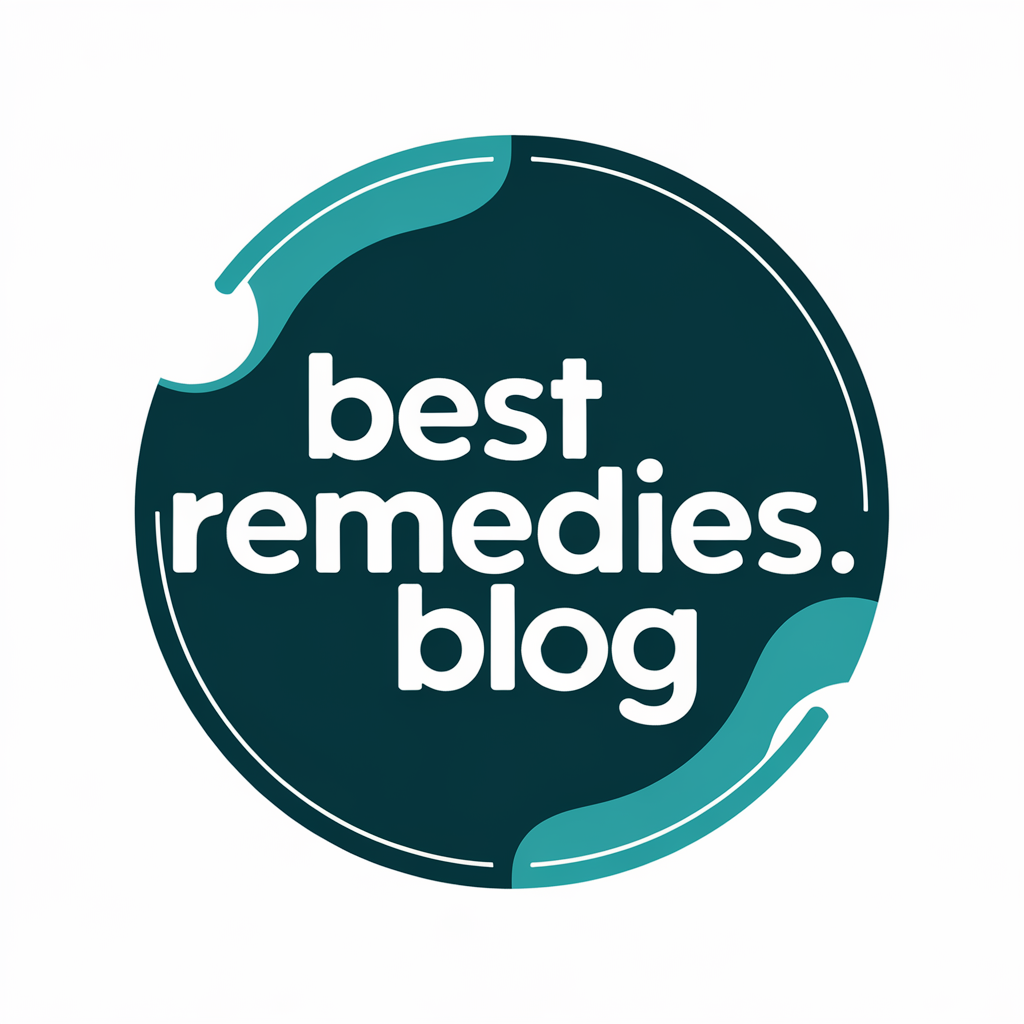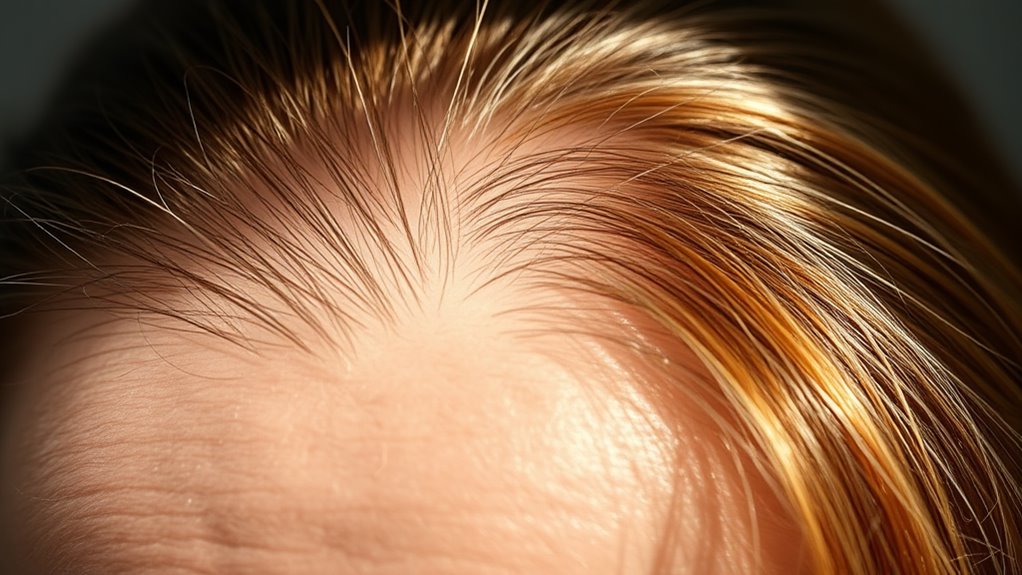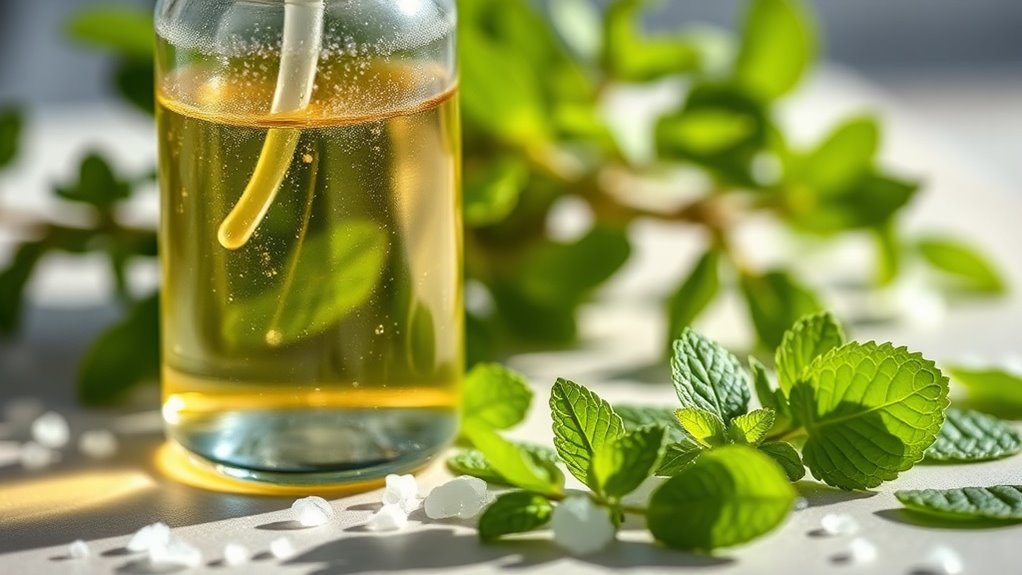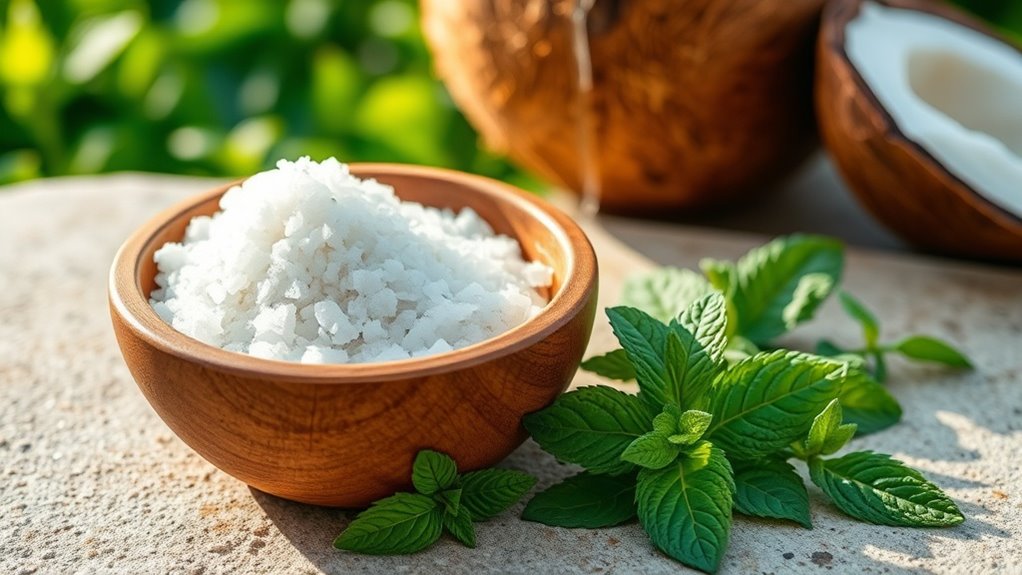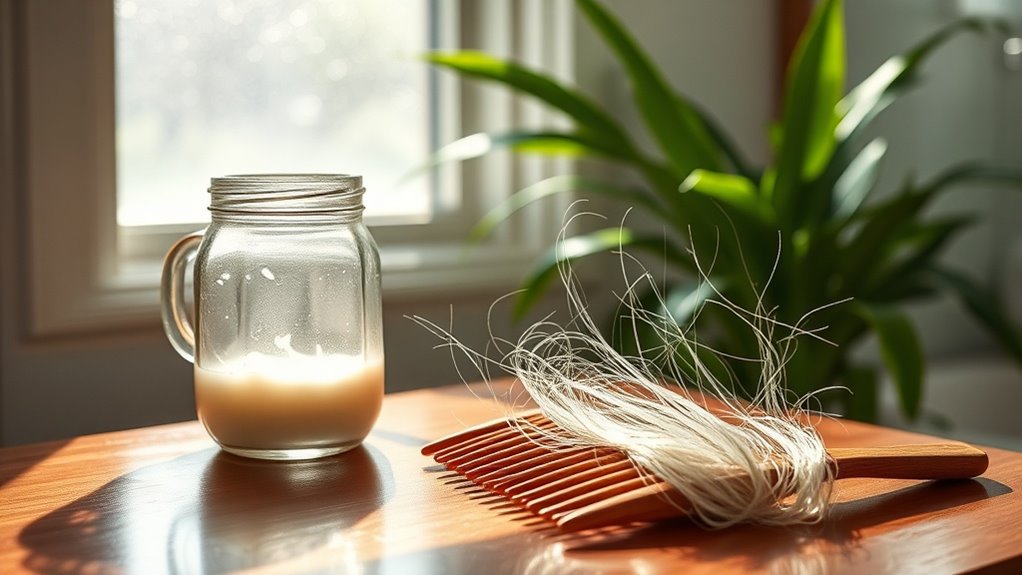I Ditched Shampoo and Used This for Dandruff-It’s Magic
If you’re grappling with those unwelcome scalp companions, it’s worth considering a natural shift away from harsh shampoos. You’ll find evidence supports simple remedies like tea tree oil and apple cider vinegar for balancing pH and fighting fungi. Stick around to uncover how this approach could transform your routine and banish flakes for good.
Key Takeaways
- Switching to natural remedies like tea tree oil can effectively reduce dandruff flakes and soothe irritation.
- Prepare a simple mixture of apple cider vinegar and tea tree oil for targeted antifungal treatment.
- Apply the remedy gently to your scalp, massaging in circular motions for even coverage.
- Users often notice quicker relief from itching and flaking within days of consistent use.
- Maintain long-term scalp health by combining remedies with a balanced diet and stress management.
My Dandruff Nightmare
You’ve likely battled dandruff’s persistent itch and visible flakes, turning everyday routines into a frustrating ordeal that affects your confidence and scalp health.
This condition, often stemming from fungal imbalances or dry skin, requires targeted action.
Evidence shows DIY dandruff treatments using natural ingredients like tea tree oil or apple cider vinegar can effectively reduce flakes and soothe irritation, as supported by dermatological studies.
You’ll apply these simple, home-based remedies weekly, minimizing discomfort without relying on store-bought options.
For enhanced results, consider adding coconut oil to your routine for its moisturizing and anti-fungal benefits.
The Shampoo Struggle
Why do anti-dandruff shampoos often disappoint, leaving flakes and irritation intact despite regular use?
You see, many formulations rely on harsh chemicals like sulfates and zinc pyrithione, which strip your scalp’s natural oils, exacerbating dryness and inflammation.
Studies show these products fail to eradicate the Malassezia fungus effectively, as they don’t penetrate deeply enough.
You’re left with a cycle of flare-ups because they disrupt the scalp’s pH balance, making it more vulnerable.
In practice, regular application doesn’t build tolerance; instead, it highlights their limitations, leaving you frustrated and searching for real relief.
Fortunately, natural remedies like apple cider vinegar can help restore the scalp’s pH balance and combat the underlying fungus.
Switching to a Natural Solution
Tired of ineffective shampoos? You’ve battled persistent dandruff despite trying various formulas, which often contain harsh chemicals that disrupt your scalp’s balance.
Evidence from dermatological studies indicates these ingredients can inflame the skin, making the problem worse.
Switch to a natural solution by seeking plant-based options that restore moisture and reduce irritation.
This authoritative approach emphasizes evaluating your routine: test pH-balanced, gentle products to promote scalp health.
It’s practical—start by reading labels and phasing out synthetics for a more sustainable, effective regimen that supports long-term relief.
For enhanced results, consider using tea tree oil in your routine to target the fungus responsible for dandruff.
What I Used Instead
You’ve likely wondered what substitute I turned to after ditching shampoo for dandruff, and it’s a simple, natural option that’s proven effective for many.
Apply it directly to your scalp with gentle massaging to ensure even coverage and maximum absorption.
This method highlights the key ingredient, tea tree oil, which targets flakes based on its antifungal properties.
To amplify the benefits, incorporate this into a three-day plan for faster and more lasting results.
My Substitute
After ditching my regular shampoo, I switched to apple cider vinegar as a simple, effective alternative for managing dandruff.
You might wonder why it’s so reliable; its acetic acid restores your scalp’s natural pH, inhibiting the Malassezia fungus that triggers flakes.
Evidence from dermatological studies confirms its antifungal and anti-inflammatory effects, reducing irritation without harsh chemicals.
As a practical option, it’s affordable, widely available, and packed with natural nutrients that support scalp health.
You’ll appreciate how it avoids common shampoo drawbacks like drying agents, promoting balanced sebum production for long-term relief.
Trust this evidence-based switch for clearer results.
